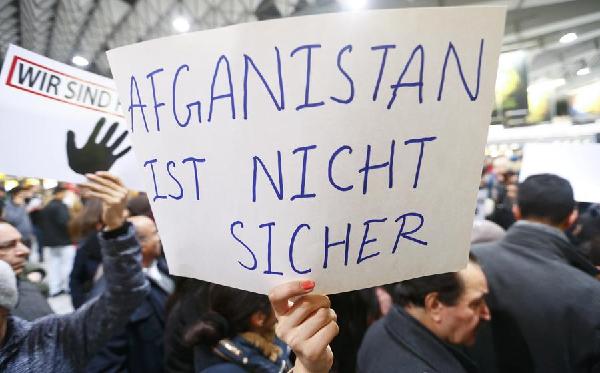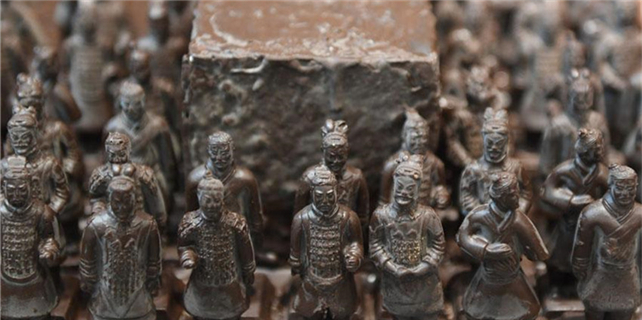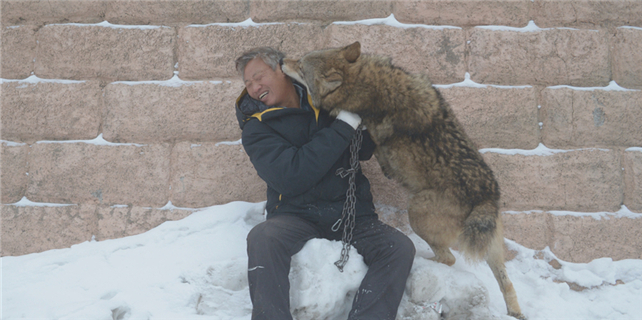Germany deports 50 rejected Afghan asylum seekers
 |
|
Protesters hold a placard reading "Afghanistan is not secure" during a demonstration against the deportation of Afghan asylum seekers from Germany back to Afghanistan, at Frankfurt Airport, Germany, December 14, 2016. [Photo/Agencies] |
FRANKFURT - Germany has carried out its first group deportation of Afghans whose asylum applications have been rejected, in line with an agreement reached with Kabul earlier this year.
A charter plane carrying about 50 Afghans left Frankfurt on Wednesday, a Reuters journalist at the scene said.
A spokesman for the Afghan Ministry of Refugees said authorities were expecting a plane with 50 returnees from Germany to arrive on Thursday in Kabul.
If the returnees need help to get back to their home provinces, the ministry will provide help, the spokesman said, adding around 10,000 Afghans had returned from Europe so far this year.
More than a million migrants from the Middle East, Africa and elsewhere have arrived in Germany since the beginning of 2015, prompting concerns about security and integration. The influx has boosted support for anti-immigrant groups such as the Alternative for Germany (AfD) party.
In 2016, Afghans were the second biggest group of asylum seekers in Germany after Syrians, according to data from the Federal Office for Migration and Refugees (BAMF).
A spokeswoman for the German Interior Ministry said the deportations were taking place on the basis of an agreement made with the Afghan government in October.
The Afghans are flown to Kabul and then ultimately sent back to their home regions if they are regarded as reasonably safe.
The next plane has been chartered for the beginning of January, according to German media reports.
Germany has seen protests against the deportations in recent weeks and critics say much of Afghanistan is not safe and that returnees might face reprisals.
Last week, Chancellor Angela Merkel's Christian Democrats (CDU) toughened their tone on migrants and Deputy Finance Minister Jens Spahn said the legal barriers to deportation must be lowered.
The Western-backed government in Afghanistan is battling a number of Islamist militant groups, including the Taliban.
Western military officials estimate that the Taliban control or contest nearly a third of the country. Civilian casualties have remained near record high levels, with thousands killed and injured in fighting every year.






















